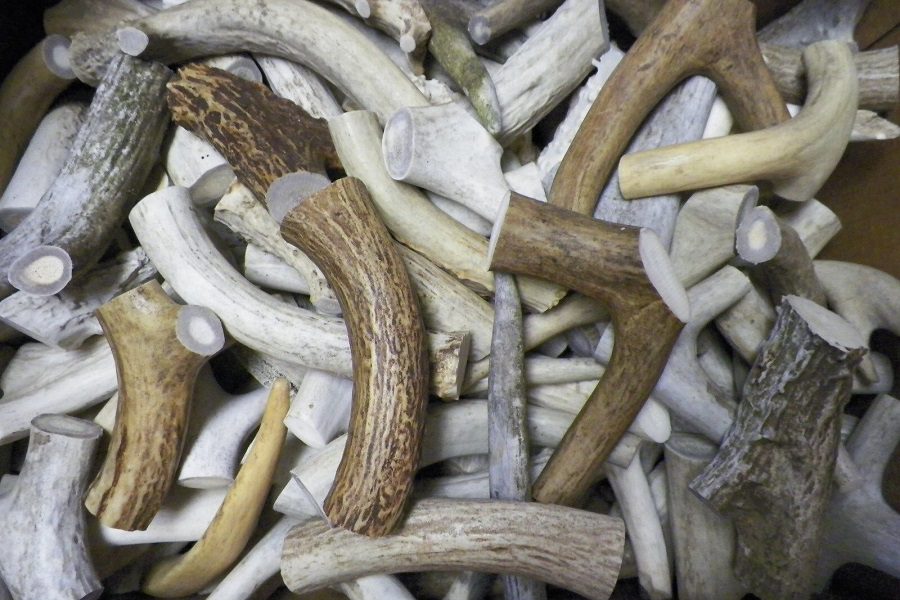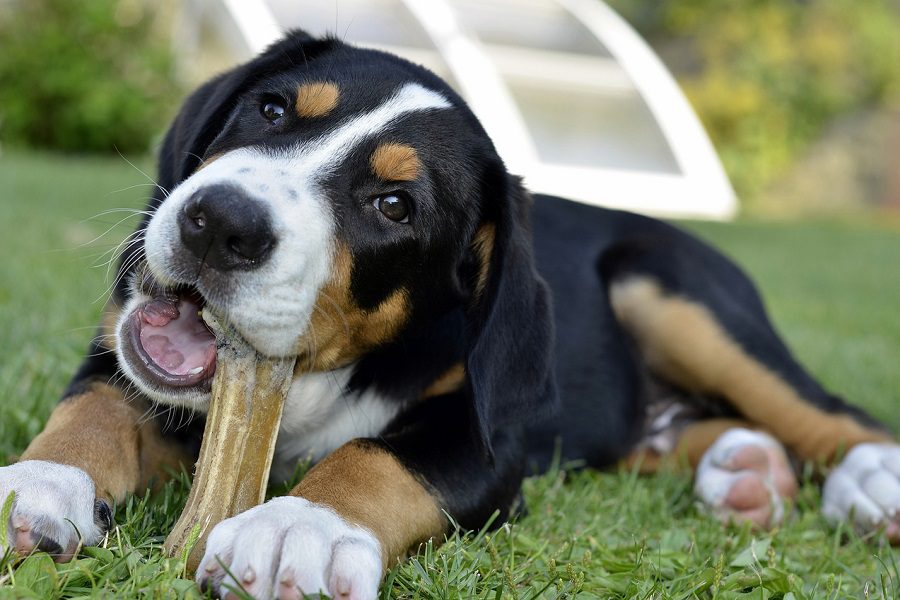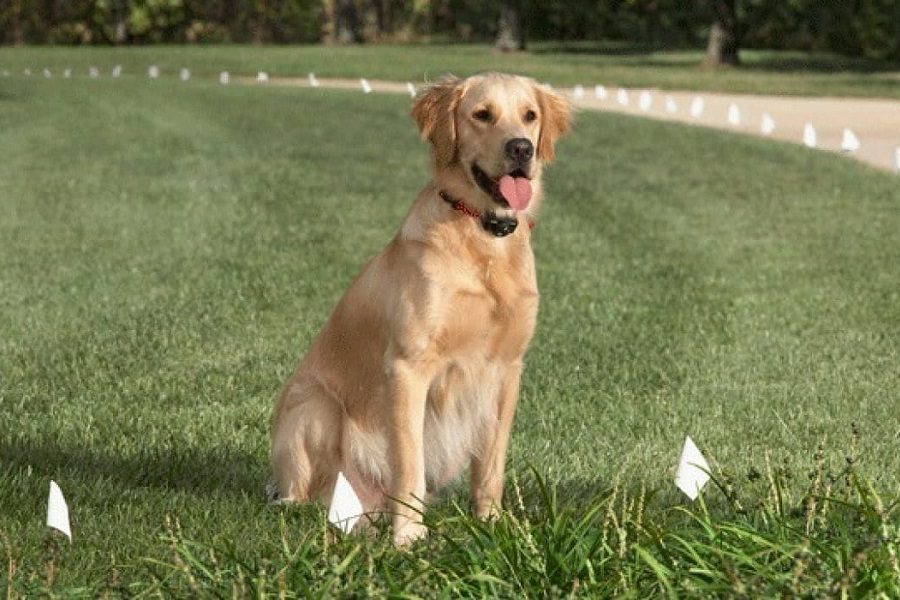Last Updated: 1 year ago
Watching your pup give birth is an exciting and wonderful time. The newborn puppies coming out and your dog feeding and taking care of them are lovely, heartwarming sights as well.
And as your pet nurses and takes care of her litter, you also have to step up with taking care of your nursing dog.
Nursing dogs have particular nutritional and care needs. Because of this, you need to be more careful about what and how to feed her.
Moreover, you should also put a bit more effort into making your nursing pet healthy, comfortable, and less stressed as she takes care of her newborn puppies.
Looking After Your Lactating Pet
Most dogs that have given birth usually do not show any interest in eating immediately. However, your pet’s appetite will likely come back after 24 hours.
Because of this, you should stock up on both wet and dry dog food so that you have something to feed your pet when she starts eating again.
High-quality dog food is usually adequate for lactating pets. However, many veterinarians recommend feeding the nursing pups food or creating a specially made lactation diet since they can give your canine the extra nutrients and calories she needs to produce more milk.
If you want to be sure you are feeding your nursing dog correctly, you will do well to ask your veterinarian for their advice.
Also, always keep your pet’s food bowl full at all times. Some nursing moms can eat up to two to three times their usual amount for a month or so.
After at least a month, your pup will start weaning her litter, which means you can also begin reducing the amount of food as you slowly switch her back to her normal adult diet.
Check For Symptoms Of Mastitis
Always keep an eye on your dog and the litter to make sure nursing is going well and that they are in good health.
Mastitis is a bacterial infection that lactating dogs can develop. You should know its usual symptoms so that you know when your pet has them.
Failing to have mastitis treated immediately can lead to the puppies catching the infection as well.
The usual signs of mastitis in dogs include:
- Swollen teats.
- Red or discoloured breasts.
- Ulcerated or inflamed teats
- Breasts that are hard or hot to the touch.
- Blood or pus is oozing from the teats and in the milk.
- Also, take note of any instances where your pet seems to be in pain when nursing. This is also a sign that your dog may have mastitis.
- If you notice any of these symptoms, bring your pet to your veterinarian immediately. They will prescribe the right antibiotics for your dog and recommend alternative feeding options for the newborn puppies until their mom gets better.
Be On The Lookout For Signs Of Canine Eclampsia
Also, take note of any instances where your pet seems to be in pain when nursing. This is a sign that your dog may have canine eclampsia.
If you notice any of these symptoms, bring your pet to your veterinarian immediately. They will prescribe the right antibiotics for your dog and recommend alternative feeding options for the newborn puppies until their mom gets better.
- Restlessness and anxiety
- Panting
- Whining
- Dilated pupils
- Elevated temperature
If left untreated, milk fever can cause convulsions, collapse, limb rigidity, and even death.
If you notice any of these symptoms, seek your veterinarian’s help immediately to prevent the condition from worsening.
Give Your Dog Space
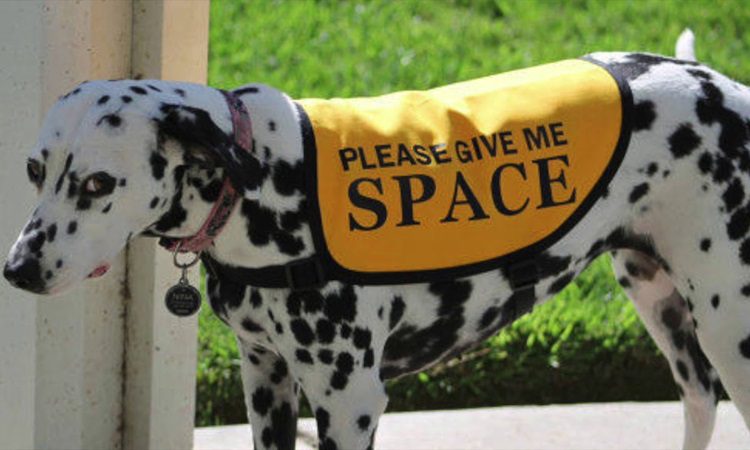
After giving birth, your pup may become annoyed and stressed by the people handling or playing with her litter frequently. Because of this, she may get aggressive towards everybody.
Reduce your pet’s stress by preparing a spot where she can sleep, rest, and nurse her litter in a secluded and comfortable area. Make sure you choose a quiet place free from traffic so that your dog and her litter won’t be bothered by noise and people all the time.
Also, you will do well to minimize the number of people touching and handling the puppies until they are at least a month old to prevent the potential spread of diseases.
When the puppies reach two weeks old, you can start giving their mother some “alone” time. You can separate the newborn pups from their mom for at least 30 minutes, two or three times a day, to let your dog go outside and play or relax on your lawn.
Your dog knows when she needs to go back to her puppies to feed and look after them, so don’t worry about your pet neglecting her litter.
Allow Your Dog To Get Some Exercise
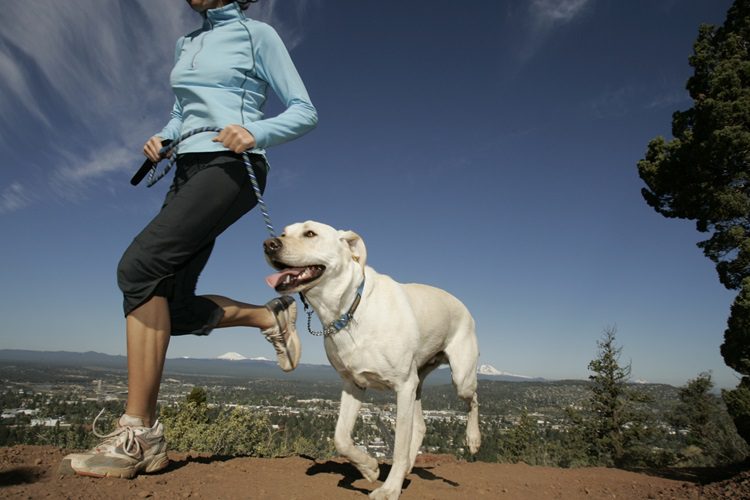
The best time to allow your pet to exercise is when she is away from her litter.
Take your pet for a walk or a potty break outdoors. Allow her to stretch her legs and sniff around while you are outside.
However, don’t expect to take your dog for her usual 30-minute walk or run in the park because she should never be away from her pups for long.
Taking your pet for a walk can get her circulation going and help guard against the loss of muscle tone. The exercise and time she spends outdoors will also be good for her mental and emotional health.
Ensure Your Nursing Pet Is Comfortable
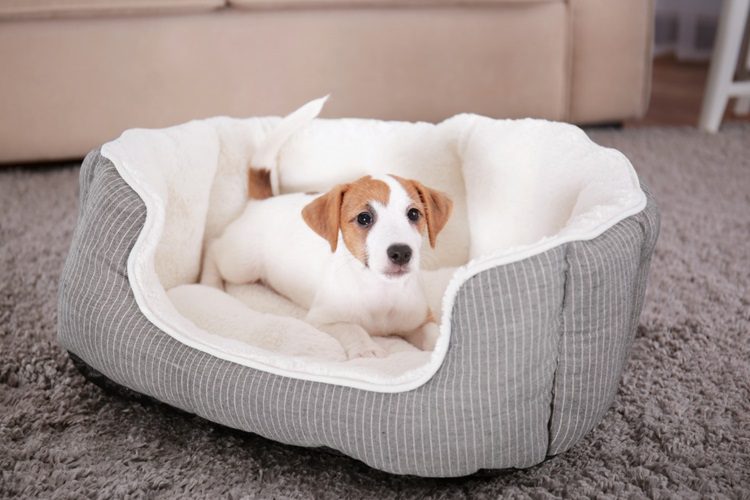
Lastly, your dog will feel better and be in a better condition to take care of her puppies when she is happy and comfortable.
Your dog is likely to have sore and chapped nipples due to nursing her newborns frequently. Make her feel more comfortable by applying petroleum jelly to soothe them.
You can also ask your veterinarian to prescribe a cream that can prevent infection and dryness in your pet’s nipples.
Also, cut or trim the hair around your pet’s hind legs, mammary glands, and tail regularly to make it easier and more sanitary for her to nurse her puppies.
If you do not feel comfortable trimming or cutting your dog’s hair, let a professional groomer do it for you. And make sure these areas are always clean.
Aside from giving your nursing dog only the best pet food, don’t skip these tips to ensure she stays healthy and in great shape as she takes care of her puppies.

